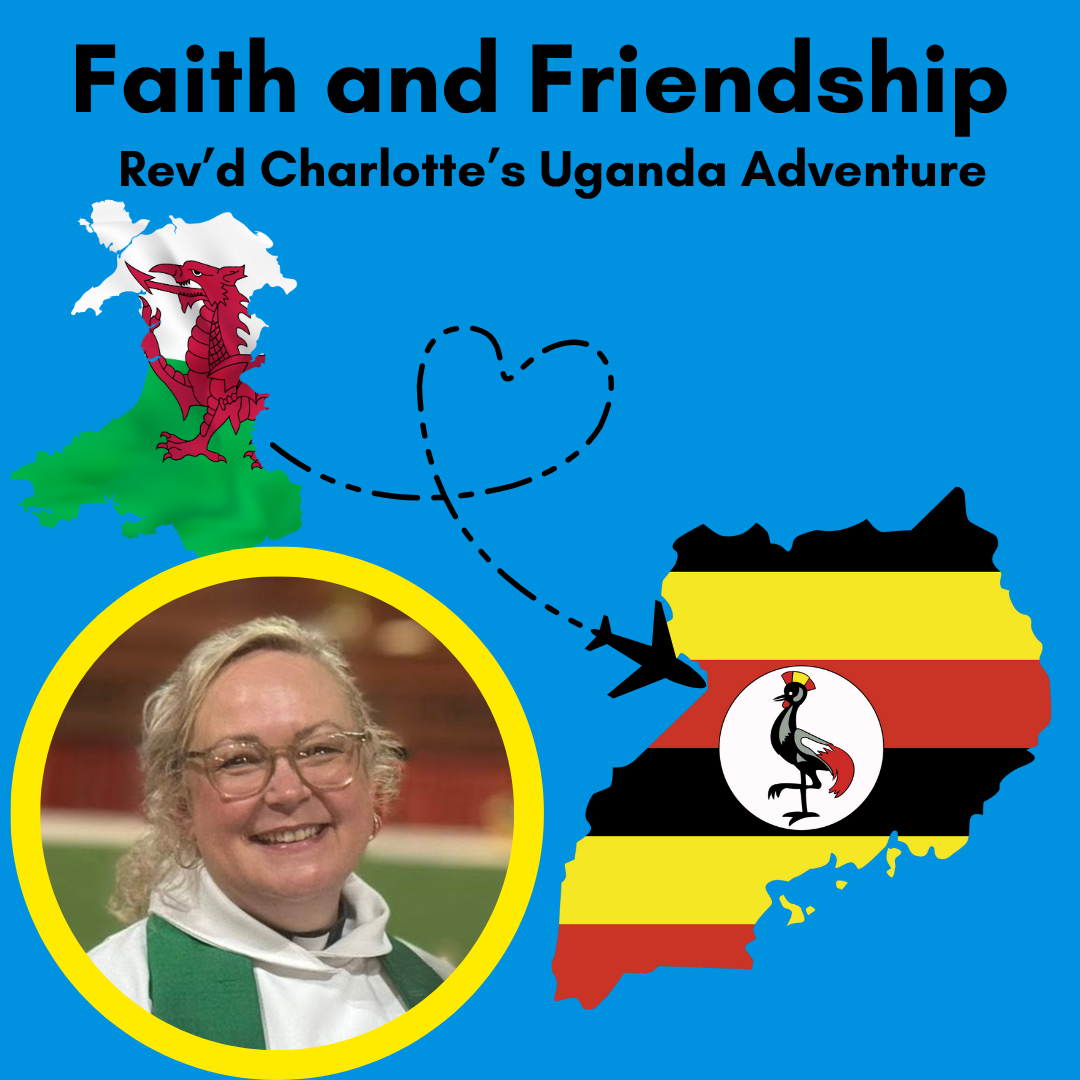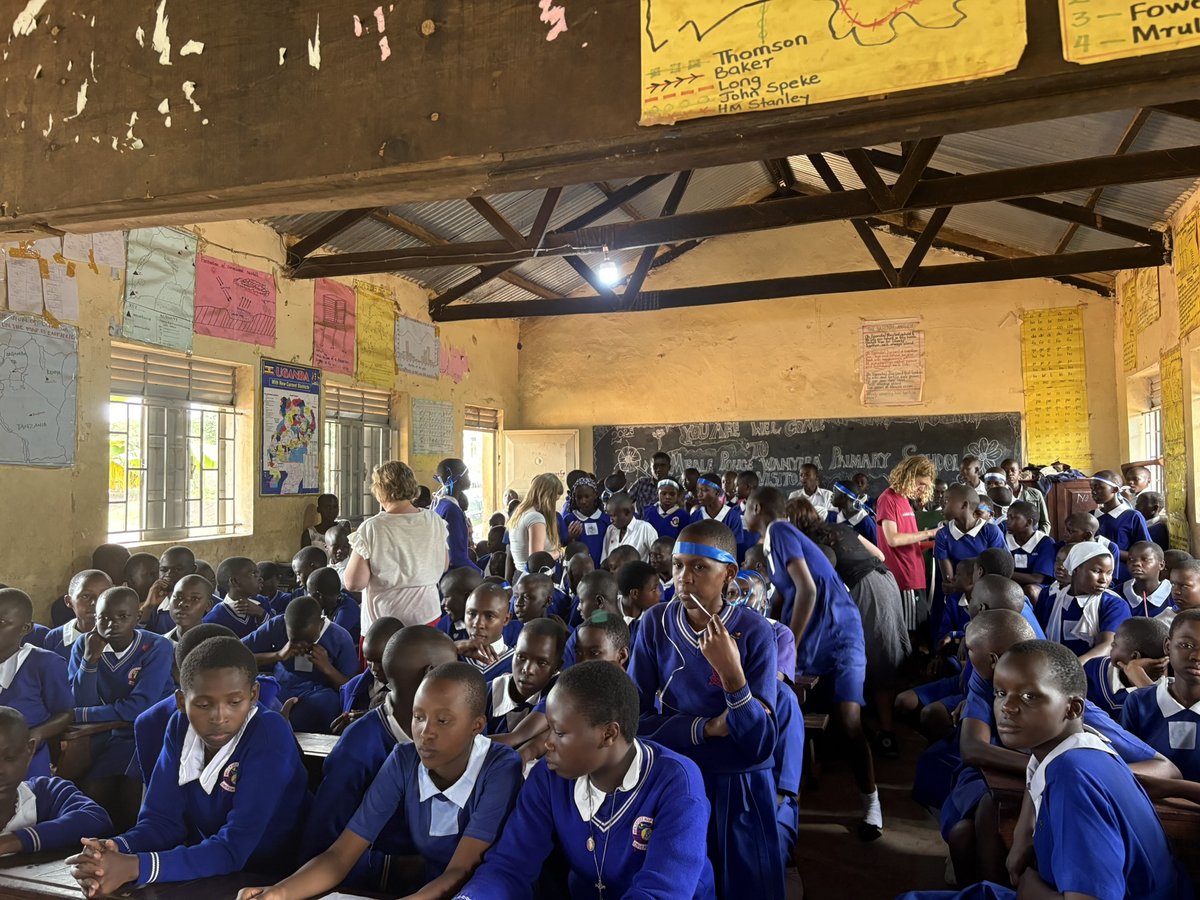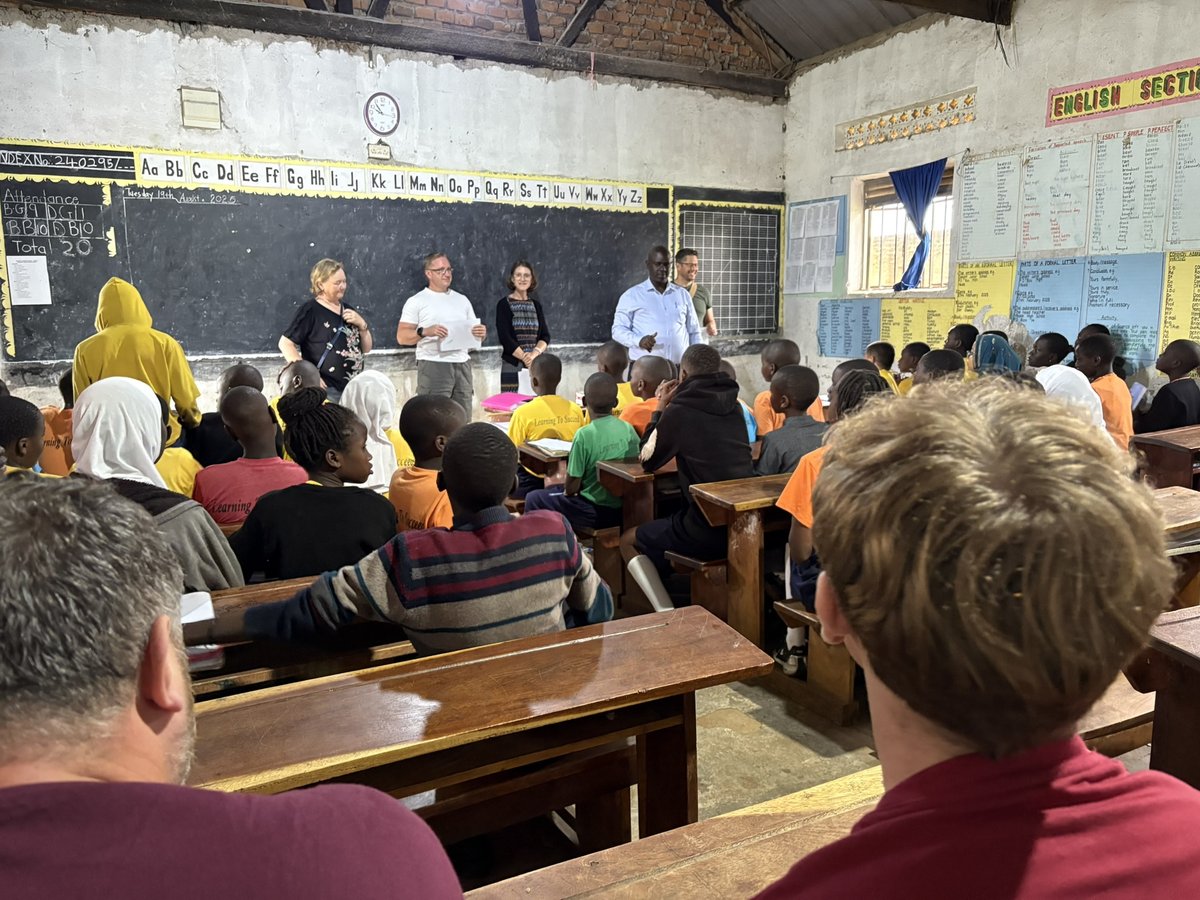Faith and Fellowship: Adventures in Uganda. Part Two: Schools
A team from Saint Catherine's church, Pontypridd recently returned home from a two week mission trip to Uganda. St Catherine’s Church is twinned with The Bishop Wasikye Memorial Church, Namamtala.
Over the coming weeks Rev'd Charlotte Rushton will share details of their Uganda adventure with us.

Uganda is a young nation. 86% of its population is under the age of 40! As you can imagine, the education system is a little different from ours. Education is compulsory for all up to the age of 14, with most children starting full time school at the age of three. Primary Schools are state funded and very large – it’s not uncommon for a primary school to have in excess of 1,800 pupils.
With nearly 49% of the country’s population under the age of 14, Uganda is deciding who they want to be as a nation in the very near future. Greater emphasis the core skills of numeracy, literacy and social skills, opposed to creativity and play. The team were blown away by the reading and writing skills of many three-year-olds. The schools are underfunded, and resources are limited, but the love, care and commitment the teaching staff show to their pupils was breathtaking!
The biggest difference in the Ugandan education system to the system we have in Wales is faith- there is an expectation for each lesson to start with prayer, for the name of Jesus to be openly and freely spoken, and for the Values of the Kingdom to be shared.

The team visited six primary schools in the Namatala Parish. We went with the intention of sharing with them a little of what life is like in Wales compared to Uganda, to share our cultural highlights and to play games with them. One of the things that the teachers were keen for us to share with them was how the British education system had become secular, and how Christianity has declined in Wales. To us, this felt like sad news to share. We spoke of our loss of sabbath rest and how technology has taken the place of Jesus in many lives. They were fascinated by the western way of thinking but lamented the loss of a relationship with Jesus. Every school took time to pray thanksgiving for our visit and prayed that our children would find faith in Jesus.
The first schools we visited, we believed that we would be lucky to see sixty to seventy children. We were surprised when 300 turned up! This was the pattern with every school we visited. We split the children into three groups – a group to play games, a group to make craft and a group to learn of life in Wales. We were amazed by how the children responded to us. The team spoke excitedly about why we have a dragon on our flag, and how we preferred to eat chips opposed to Matoke (boiled, savoury banana). The children laughed as we taught them to sing Hen Wlad Fy Nhadau and joined in with their traditional dancing.
The one thing that surprised the group was how much the children enjoyed playing with the craft. It was a real treat for them to colour, cut, glue and add stickers to their pictures. We took this creative expression for granted as it is so prevalent in our schools, however, Ugandan schools are so desperately under resourced, there is no provision for colouring pencils or stickers. Some of the schools were delighted that the children got to play with the footballs we took as they too were resources the schools could not afford.
Every school we visited faced the same issues around resources and every school we visited made us welcome – not because they sought funding, but as they took the teaching of Leviticus 19:33-34 ( ‘When a foreigner resides among you in your land, do not mistreat them. The foreigner residing among you must be treated as your native-born. Love them as yourself, for you were foreigners in Egypt. I am the Lord your God) very seriously.

Reflecting on the experience, Andrew Sowerby of St Catherine’s Church commented: “We met children there that were all bilingual, were all supporting climate change laws and they were all outgoing. It was wonderful to share our faith and our common humanity with them.
Every day we saw people blessing each other and thanking God; and because material wealth is very limited, it makes you very thankful, and it makes you reflect differently on your own situation.
[This experience] has made me feel more thankful for what I’ve got, but it has also made me more confident at being a Christian.”
Through the work of PONT, 100 schools in the Mbale region has been twinned with schools in South Wales, so that our young people can learn from the children in Mbale and that both school communities can share the love of God.